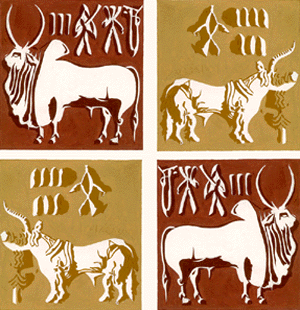
Relieving our past from prejudice will not only contribute to a more rich and creative understanding of it but could also, at this fragile juncture, contribute to a more rational understanding of the present
The successful penetration of a single term, Babar ki aulad (sons of Babar), in the Indian socio-political discourse shows the remarkable success of Hindutva ideology in interpreting past events for us. A series of connected images get conjured up: the marauding, fanatical Muslim invader who has raped and killed, plundered our temples and imposed Islam upon us.
Some of ‘Babar's descendants’ didn’t merely divide the motherland but a section of them still live amongst us, claiming equal rights. The past decade has been live witness to the bloody potential of such communal discourse. Text books are today only one of the means by which communal ideologies are perpetuated.
On the flip side of the coin, Muslim communal historiography is evident in Pakistan's text books. Both these communalist renderings of history are an obstacle to a holistic and creative association with our past.
Historians inevitably enter the debate because communal ideology always uses distorted images of historical events for its justification. Nowhere was this more clearly evident than right through the mobilisation for the Ramjanmabhoomi campaign. And the history teacher is the crucial, live link between this vast body of analysis and the child.
Apart from publishing Communalism Combat, we at Sabrang Communications have been experimenting with putting together a module of a secular education project - KHOJ - for the past three years. As part of this effort, we have felt the need to creatively link the independent historian with the history teacher, who today is unequipped to deal with the communal onslaught.
As a beginning, we organised a two day, intensive workshop to enable such an interaction between independent historians of stature and history teachers from a wide spectrum of Bombay schools. Apart from the plan for further action the workshop began with detailed presentations of the four periods of Indian history: Ancient, Early Medieval, Medieval and Modern. Apart from this public note of gratitude for professors Romila Thapar, Keshavan Velluthat, Anirudha Ray and K.N. Panikkar for their enthusiastic participation in the workshop, we present excerpts from their presentations for Combat readers.
KHOJ also proposes to publish in the near future a detailed report of the proceedings of the workshop and also produce a video on Communalism and the Reading of Indian history, as a resource for schools



